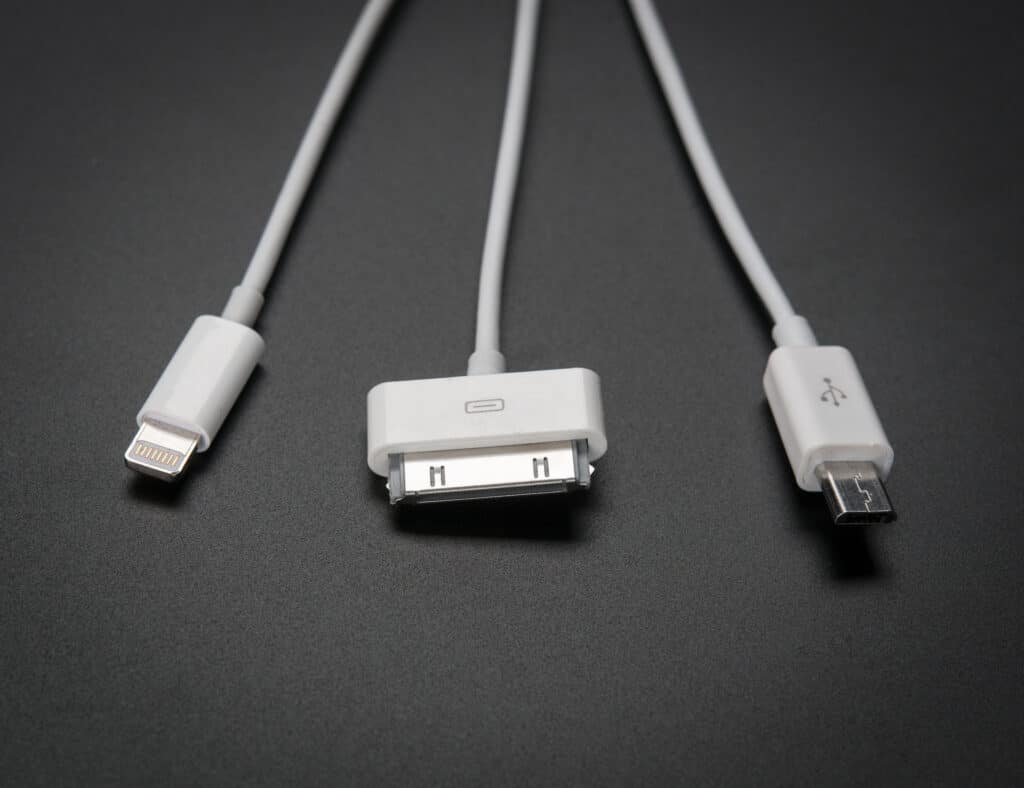Your phone battery life is precious. It is one of the main features we look for when buying a new updated smartphone.
When cell phones emerged in the big form of a walkie talkie type of body, there was an option to have more than one battery., to replace while on the go. When smartphones emerged, most of them had this same option, except pray tell, the iPhone.
Apple has always prided itself with creating simplistic, and unique technology that stood out from the other companies. The innovative iPhone was no different.
It came with an enclosed body, which did not allow the user to replace the battery when it died. Instead, Owners would have to have a charger on hand, to ensure they had something to constantly keep their phone charged, before retailers eventually came out with portable charging units.
If your iPhone’s battery began to diminish, Apple would replace it free of charge in most cases for free in the early stages of the iPhone. These smartphones also came with unique chargers that were specific to only iPhones, whereas any other cellphone, either basic or smart, could be charged with a standard USB charger at the time.
Earlier this year, the European Union reached an agreement to require hardware manufactures – like Apple – to all have a common type of charging chord, more specifically, the well known USB-C Standard by the year 2024.
In June, Democratic Senators sent out an open letter to Commerce Secretary Gina Raimondo, which pushed for the US to follow in their footsteps. The main purpose of this letter – to get people to recognize the environmental impact these chords have.
Beware of Health Hazards & Other Annoyances

Former presidential candidate Bernie Sanders of Vermont, Elizabeth Warren, and Ed Markey of Massachusetts have noted the consumer frustration, costs, and e-waste that has piled in landfills with the variety of charging chords. The letter cites a figure that was in the EU doctrine, which notes that chargers account for an estimated 11,000 TONS of e-waste a year.
As you may know, and as the Senators noted, “When electronics are not disposed of properly, e-waste can spread toxins in water, pollute soil, and degrade the air we breathe.”
The letter also indicated by the EU data that in 2020, 38 percent of EU consumers found difficulties when charging electronics due to incompatible charging chords.
Whatever your reason for wanting a reduction in chord production, it is clear, these are causing a big impact.
“This policy has the potential to significantly reduce e-waste and help consumers who are tired of having to rummage through junk drawers full of tangled chargers to find a compatible one, or buy a new one,” the lawmakers note. “The EU has wisely acted in the public interest by taking on powerful technology companies over this consumer and environmental issue. The United States should do the same.”
I’m almost certain that you can relate to this sentiment of having to find a charger that fits the right phone or electronic at some point. While the USB-C or wider set of USB chargers has been adopted to the majority of manufacturers within the smartphone industry, there are some companies that are still using the micro-USB chargers or rly on their own specific chord like Apple iPhone’s.
Even though Apple has adopted the USB-C charging chords for MacBooks and iPads, you probably noticed that they continue to provide and continue to provide the lightening fast specific iPhone charging chords.
Essentially, this legislation change would require all companies to move to USB-C within the US as well.
We all know Apple is one of the most innovative companies out there, and have made their mark on the smartphone industry. The letter continues to acknowledge this idea, and reads: “Innovation should benefit consumers. It should not come at their expense, saddle them with incompatible accessories, and compel them to purchase different charging equipment for each device they own.”
The strongly worded letter focused on the “consumer electronics industry’s failure to establish uniform charging accessory standards” and subsequent “economic and environmental harm.”
It also pointed to EU data finding that in 2020, 38 percent of EU consumers had at least one time when they were trying to charge their phone and the only chargers around were incompatible.
This experience is ubiquitous for Apple iPhone users dependent on the proprietary Lightning port. Apple is the most well-known opponent of mandated USB-C charging in the EU. It claimed the policy would limit innovation and create more customer confusion and e-waste as Lightning chargers and accessories become obsolete.
Markey, Sanders, and Warren said such arguments preemptively, describing the chargers’ “planned obsolescence” as a financial burden for consumers.
The letter reads: “Innovation should benefit consumers. It should not come at their expense, saddle them with incompatible accessories, and compel them to purchase different charging equipment for each device they own.”
I’m pretty sure you remember those 30-pin connector chargers for the older iPhones and iPods that have now become obsolete. Creating new specialized chords for new products for you to toss the old ones away seems a bit redundant.
Legislation Takes its Time

Unfortunately the while the US would like to look towards other foreign policies that have been implemented to create changes, they seem to take their time to go into affect. There’s definitely a long way to go before we see the USB-C or any other charging solution standardized in our gadgets.
The EU took ten years just to pass this current legislation and come to a cooperative integrative plan, and it still won’t take effect for another two years in 2024. Of course they’ll also have a huge backlash from companies with lots of money pushing against this like Apple.
In addition to using the EU’s data to make its argument to Raimondo, the senators asked her to follow EU legislators’ lead “by developing a comprehensive strategy to address unnecessary consumer costs, mitigate e-waste, and restore sanity and certainty to the process of purchasing new electronics.”
Senators Try to Stay Unbias

Interestingly enough, the Senators in support of this legislation change, did not name which chords should be the Standard in the US, and whether they would promote the USB-C change as the EU has.
The other strange part about the senators stance is that they didn’t necessarily suggest a law be passed about the change, but urged for an inter-agency type of discussion. The big issue with having a universal charging policy legislation change happening, is that there would be massive opposition from big businesses, and political groups who believe the government shouldn’t be allowed to have so much control and less involved. Although there have been some movements in this realm, such as NY state passing the first electronics right to repair bill, which requires original equipment manufacturers to provide diagnostic and repair information.
If the US government is going to standardize a charging chord, the USB-C chord is probably the most likely choice, as many electronics have adopted the use of this charging chord. Even Apple may be crumbling under pressure, as there have been rumored reports of testing USB-C charging for iPhones in the next line of iPhones in 2023.
Lastly, the argument of having a universal charging could potentially put a stop to newer innovative charging techniques or chords, seems a bit far fetched. Even the EU touched on this problematic idea, by stating it would amend its policy if a new form of charging technology came out for consumers that was somehow better than the USB-C.
The idea of the universal charger for products depends on which products are targeted for having this commonality. It could be an issue for manufacturers that create premium chargers with the lightening fast charging abilities with more power, or similar products that take more power over the proprietary technology such as the Micro USB, which costs less but can be a bit bulkier.
Regardless of the obstacles, senators believe the US government should follow the EU’s lead, which “wisely acted in the public interest.” What are your thoughts as a consumer?

Pingback: 7 Things Every Mobile Gamer Should Buy in 2022 – News Portal